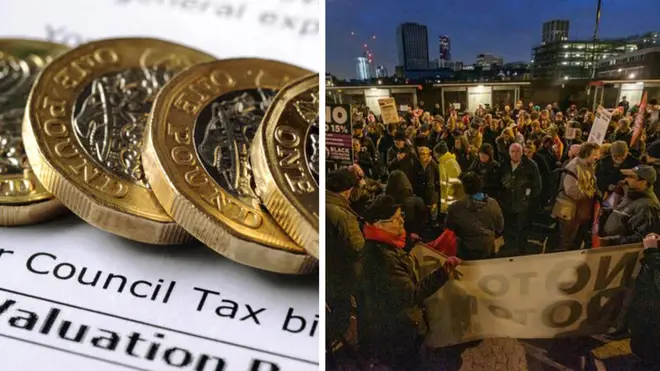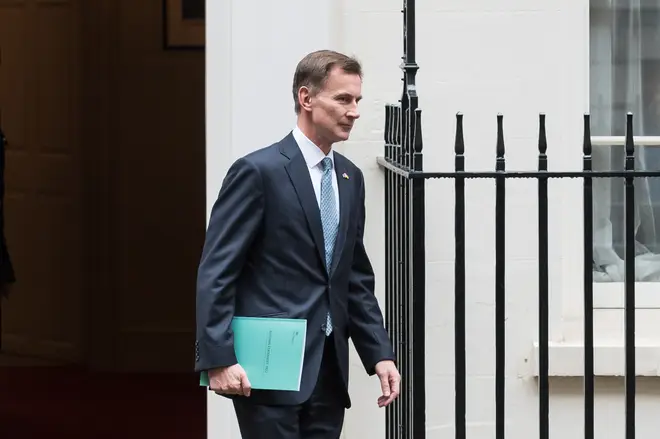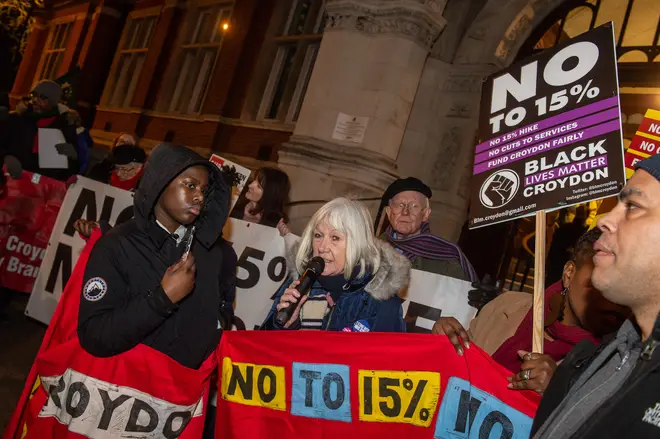
Ben Kentish 10pm - 1am
23 March 2023, 19:54 | Updated: 23 March 2023, 19:58

Families are set to pay more than ever before in council tax after Jeremy Hunt allowed local authorities to raise the levy in last year's autumn budget.
New figures from the department for levelling up, housing and communities show the average cost for a Band D property in 2023-24 will be £2,065.
That represents a 5.1% increase on the average for the year before, and works out as an extra £99 a year for those in metropolitan areas.
Before the Chancellor's autumn statement in November, councils were restricted to raising bills by a maximum of 3%, and were required to hold a referendum to exceed this threshold.
But last year's autumn budget has given councils the freedom to hike the levy by 5% without a referendum, to help local authorities manage cost pressures.

Money collected from council tax is typically spent on local services such as street lighting, public transport and recycling centres, but some council chiefs say that even with a 5.1% hike, services could still be cut back to prioritise the likes of elderly social care.
Read more: Parliament bans TikTok from devices amid crackdown on popular app
Read more: Junior doctors announce second round of strikes, with walkouts on four more days in April
Carl Les, finance spokesman for the county councils network and Conservative leader of North Yorkshire county council, said: "The additional funding provided by the Chancellor at the autumn statement made a big dent in the unprecedented new costs councils face in 2023-24, but unfortunately it was not enough.
"We understand that residents are in the midst of a cost of living crisis, and many of us have reluctantly proposed maximum council tax rises.
"While councils will do all they can next year to deliver these savings whilst protecting vital services, particularly care services, there is already little fat to cut.
"The medium-term outlook looks bleak unless these higher costs are recognised and councils are given longer term financial certainty, alongside delivering long-promised fair funding reforms."
James Jamieson, the chair of the Local Government Association, which represents local authorities, warned that councils “recognise it will be residents and businesses that will be asked to pay more”.
Cllr Jamieson added “council tax has never been the solution to meeting the long-term pressures facing services” in particular “high-demand services like adult social care, child protection and homelessness prevention”.
“It also raises different amounts of money in different parts of the country unrelated to need and adding to the financial burden facing households,” he added.

Meanwhile councils in Croydon, Thurrock and Slough are expected to see taxes rise even further to double digits next month due to exceptional financial struggles.
The government approved a hike of 15% without a referendum last month for Croydon, as the council declared itself bankrupt. Thurrock is set to rise taxes by 10%, while Thurrock tax is set to rise by 9.9%.
Tax hikes are one of many changes the government has made in its bid to tackle the cost-of-living crisis, as the country continues to endure the aftermath of the Covid-19 pandemic, Liz Truss's September mini-budget and the ongoing war in Ukraine.